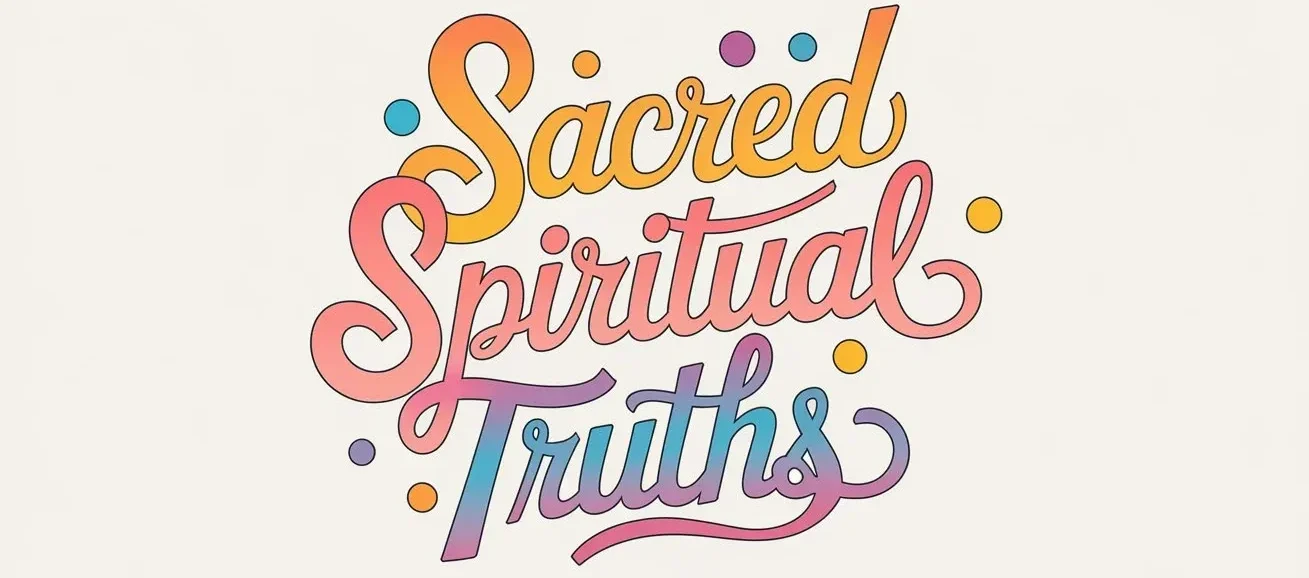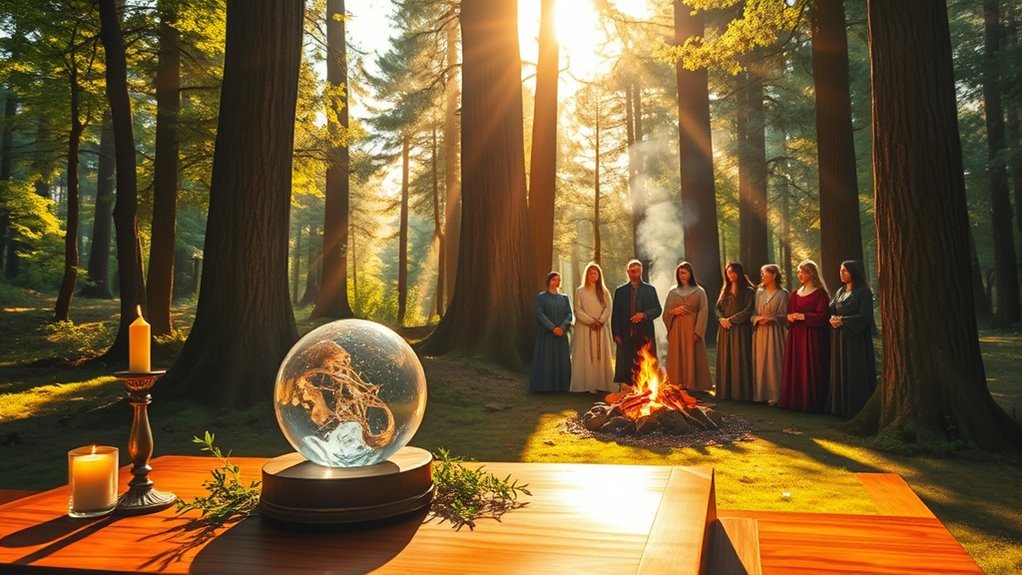11 Spiritual Meanings of Difference Between Wicca and Pagan: Beliefs, Deities, and Traditions
Understanding the differences between Wicca and Paganism helps clarify their beliefs and practices. Both honor nature and the divine. Wicca is a modern spiritual practice. It follows specific rituals, symbols, and deities. The focus is mainly on the Goddess and the God. Paganism covers many traditions. It is broader and includes ancient spirits and natural forces. Exploring these differences shows how beliefs, rituals, and traditions shape each path. Knowing these distinctions helps you choose the spiritual path that fits your beliefs and values.
Origins and Historical Roots
Many beliefs and practices in Wicca and modern Paganism come from ancient times. Though these paths officially began in the last century, their roots go back much further. Exploring these traditions shows how history shapes their teachings.
Culture influences their rituals and symbols. For example, many modern practices take ideas from Celtic, Norse, and Mediterranean cultures. They blend old stories with present-day spirituality. This mix helps you feel connected to history and different civilizations.
Understanding where these paths came from shows they’re alive. They grow and change with human experiences. Like a tapestry, they’re made from threads of history, culture, and shared beliefs.
Definition and Scope of Practice
The practice of Wicca and modern Paganism provides a clear way for people to connect with their spirituality and the natural world. These belief systems influence how each person practices their spirituality.
Each person’s spiritual journey is different. The practices include rituals, meditation, or nature worship. People can practice alone or in groups. Many Pagans celebrate seasons, lunar cycles, and traditions from their ancestors.
These practices help people feel connected and spiritually fulfilled. The practices are flexible. They allow individuals to explore what feels meaningful to them. This approach helps create a welcoming community. It values each person’s way of expressing their spirituality.
Core Deities and Pantheon Beliefs
Core deities and the pantheon play a key role in Wicca and many pagan traditions. These deities and spirits reflect natural cycles and cosmic forces. Symbols of gods and goddesses represent qualities such as fertility, wisdom, and transformation.
Stories about these deities help explain changes in seasons and life’s mysteries. They also teach spiritual lessons and create a sense of connection. The Goddess and God are central figures. They represent opposite aspects of nature, like light and dark, growth and rest.
Rituals and Religious Ceremonies
Rituals and religious ceremonies are central to Wiccan and pagan practices. They turn beliefs into actions and help you connect with the divine. These rituals often include symbols and tools that carry meaning beyond their appearance.
When you participate, you join a tradition based on shared energy and spiritual focus. Your tools, such as a wand, chalice, or athame, represent elements and divine forces. These items help create sacred space and focus your thoughts.
Every gesture and object can strengthen your sense of belonging.
- Use symbols like candles and herbs to connect with nature.
- Celebrate life’s seasons with special objects.
- Set up a sacred space to honor deities and spirits, making each ritual meaningful.
Calendar and Seasonal Celebrations
A calendar of festivals and sacred days provides a clear structure for Wiccan and pagan communities. These dates help mark the changing seasons and spiritual milestones. You can observe lunar festivals that follow the moon’s phases. For example, the New Moon represents new beginnings, while the Full Moon is a time for manifestation.
Solar celebrations celebrate the sun’s movement through the Wheel of the Year. They include solstices and equinoxes. These festivals connect you to the natural rhythms of the Earth.
These festivals are more than just dates. They’re opportunities to gather with others who share your beliefs. You can reflect on growth and honor nature’s cycle. Celebrating these seasonal days deepens your spiritual practice.
It also welcomes the positive energy of each special occasion.
Sacred Texts and Spiritual Literature
Sacred texts and spiritual writings play an important role in Wicca and pagan practices. They serve as guides in your spiritual path. These texts include stories about gods and goddesses, meditative writings, and myths. They help you connect with tradition and community.
These writings act as a shared language that offers comfort and understanding. Mythological stories teach lessons and share ancient wisdom. They inspire your spiritual journey.
Meditative texts help you practice mindfulness. They assist you in finding calm and balance inside. As you read these sacred writings, you can feel a sense of belonging.
They give your life purpose and direction. See these texts as friends that guide and support you. They nurture your growth with stories and teachings that connect across generations.
Concept of Divinity and Divine Power
Have you thought about what makes divinity special in Wicca and pagan beliefs? It’s about how you see the divine power around you. Your idea of divinity can be different. Many believe it’s a personal link to the sacred energy in nature and the universe.
Unlike some religions with strict rules about gods, Wicca sees the divine as a balanced and inclusive force. Some see it as separate gods and goddesses. Others see it as one divine energy.
This flexible view allows you to build your own relationship with the divine. It feels more like talking to a close friend than praying to a distant deity.
Approach to Magic and Theurgy
In Wicca and pagan practices, magic and theurgy focus on forming a clear connection with energy. You use rituals with symbolic actions, words, and objects that matter to you.
This makes your spells more effective and personal, helping you put your intentions into action.
Here’s how this approach improves your practice:
- Symbols in rituals link your goals to universal energy, making your spells stronger.
- Spellcasting becomes a sacred act, deepening your connection with nature and spiritual forces.
- Your feelings and intentions give your magic power, making your rituals heartfelt and meaningful.
Ethical Principles and Moral Frameworks
Following ethical principles and moral frameworks in Wicca and pagan practices guides you to act with clear intention and honesty.
The Wiccan Rede, which says “An it harm none, do what ye will,” offers a simple ethical rule. It helps you make thoughtful choices.
These moral frameworks promote kindness, respect, and balance. They shape how you treat others and the natural world.
Many pagans believe that living by these principles deepens your spiritual connection. They also help build strong community ties.
These principles remind you that your actions matter. They can create positive effects worldwide.
Using a clear ethical code ensures everyone understands each other’s values. It prevents conflicts and disagreements.
The goal is harmony, growth, and shared understanding in your spiritual path.
Community Structure and Worship Gatherings
Are you interested in understanding how Wiccans and other pagans gather to celebrate their beliefs? Their community structure mainly involves meaningful interactions. They often hold community rituals at special locations like groves, temples, or outdoor sacred spaces. These gatherings strengthen their sense of belonging and spiritual connection.
You’ll notice that:
- Community rituals are key moments for connection and renewal.
- Worship locations become sacred spaces where energy and intentions focus.
- Celebrations include teachings, storytelling, and group energy work.
These gatherings happen during moon phases, solstices, or festivals. They deepen spiritual understanding and encourage support among members. The community welcomes everyone’s participation.
This makes each ritual lively and personal. Shared faith, respect, and participation create a strong bond within these communities.
Symbolism and Sacred Tools
Symbols and sacred tools are important in Wiccan and pagan practices. They help focus energy and show beliefs. Ritual tools like athames, wands, and chalices are used to make symbolic gestures. These gestures connect you with natural forces and deities.
Sacred tools are more than objects. They act as extensions of your intentions. They make rituals more meaningful. When you hold a wand or cast a circle, you create a sacred space. These actions channel spiritual energy.
Symbols and tools remind you of your connection to the universe. They also reinforce mindful action in your practice. Using everyday items as symbols turns them into meaningful tools. This approach adds depth to your spiritual work and deepens your connection.
Frequently Asked Questions
How Do Wicca and Paganism View Environmental Stewardship?
Wiccans and Pagans see caring for the environment as important. They believe nature is sacred. They feel a strong bond with the Earth. Protecting nature is part of their spiritual beliefs. They honor the land, water, air, and plants. This respect guides their actions. They work to keep the environment safe and healthy. Their view is that humans should be good stewards of the Earth. This commitment helps them live in harmony with nature.
Are Wicca and Paganism Compatible With Mainstream Religions?
Wicca and paganism can work well with main religions. People can talk and learn from each other. Sharing common values helps create respect. Because of this, different beliefs can live together peacefully and support each other.
What Are Common Misconceptions About Wicca and Pagan Beliefs?
Many believe Wicca and pagan beliefs are just about worshiping nature, but they include important symbols and rituals. These practices help build a sense of community and connection with others. Myths that say they are strange or misunderstood are not accurate. Instead, these beliefs emphasize respect for nature and fostering belonging among practitioners.
How Do Personal Spiritual Experiences Differ in Wicca and Pagan Practices?
Your personal spiritual experiences and rituals influence your sense of connection in Wicca and pagan paths. In Wicca, these experiences are often organized and include group celebrations. In contrast, broader pagan practices usually involve more personal and private spiritual encounters. Both approaches help deepen your spiritual understanding, but they differ in structure and focus.
Can Someone Be Part of Both Wicca and Other Spiritual Paths Simultaneously?
Yes, you can belong to both Wicca and other spiritual paths at the same time. Many people choose to practice multiple traditions or follow different spiritual paths. This approach allows you to learn from each path and develop a unique spiritual practice. You can combine beliefs, rituals, and traditions that resonate with you. Practicing more than one path can give you a broader understanding of spirituality. It also helps you find practices that fit your personal beliefs and needs. Many spiritual seekers find value in exploring multiple paths for a richer, more personal spiritual experience.

Marlowe is a writer and spiritual explorer at Sacred Spiritual Truths, where she shares her insights and perspectives on spirituality, mindfulness, and conscious living. Her goal is to inspire and empower others to live a more authentic, meaningful life.






